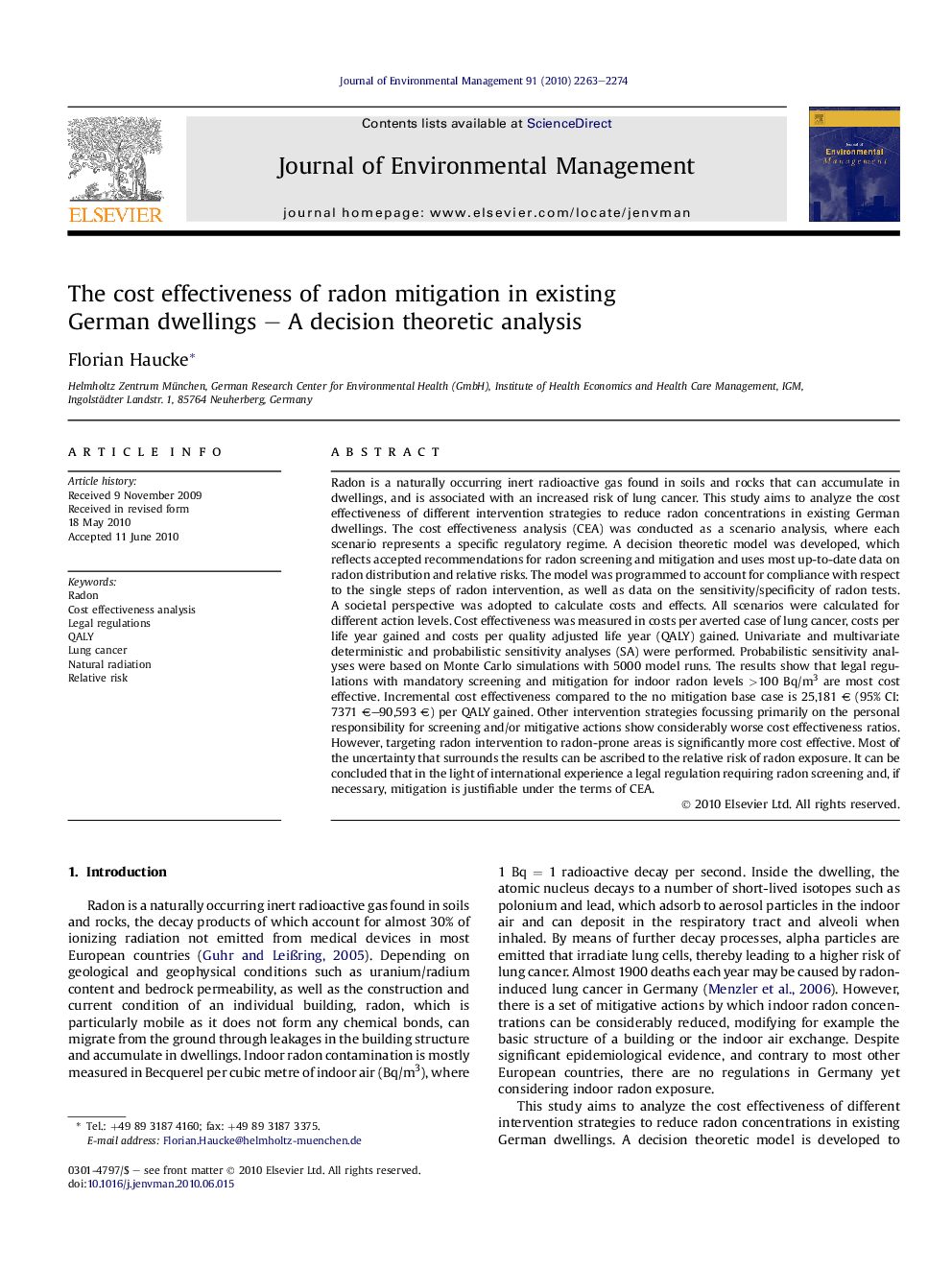| Article ID | Journal | Published Year | Pages | File Type |
|---|---|---|---|---|
| 1057196 | Journal of Environmental Management | 2010 | 12 Pages |
Radon is a naturally occurring inert radioactive gas found in soils and rocks that can accumulate in dwellings, and is associated with an increased risk of lung cancer. This study aims to analyze the cost effectiveness of different intervention strategies to reduce radon concentrations in existing German dwellings. The cost effectiveness analysis (CEA) was conducted as a scenario analysis, where each scenario represents a specific regulatory regime. A decision theoretic model was developed, which reflects accepted recommendations for radon screening and mitigation and uses most up-to-date data on radon distribution and relative risks. The model was programmed to account for compliance with respect to the single steps of radon intervention, as well as data on the sensitivity/specificity of radon tests. A societal perspective was adopted to calculate costs and effects. All scenarios were calculated for different action levels. Cost effectiveness was measured in costs per averted case of lung cancer, costs per life year gained and costs per quality adjusted life year (QALY) gained. Univariate and multivariate deterministic and probabilistic sensitivity analyses (SA) were performed. Probabilistic sensitivity analyses were based on Monte Carlo simulations with 5000 model runs. The results show that legal regulations with mandatory screening and mitigation for indoor radon levels >100 Bq/m3 are most cost effective. Incremental cost effectiveness compared to the no mitigation base case is 25,181 € (95% CI: 7371 €–90,593 €) per QALY gained. Other intervention strategies focussing primarily on the personal responsibility for screening and/or mitigative actions show considerably worse cost effectiveness ratios. However, targeting radon intervention to radon-prone areas is significantly more cost effective. Most of the uncertainty that surrounds the results can be ascribed to the relative risk of radon exposure. It can be concluded that in the light of international experience a legal regulation requiring radon screening and, if necessary, mitigation is justifiable under the terms of CEA.
